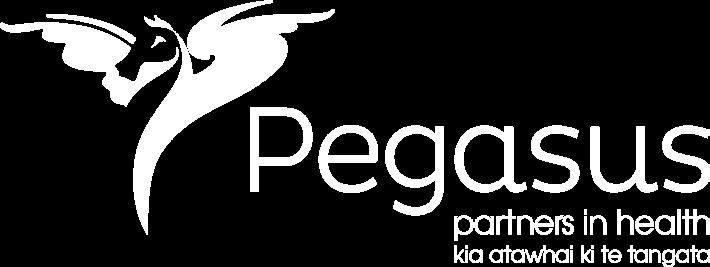PEGASUS 2025
Kia atawhai ki te tangata
Caring for the health and wellbeing of Cantabrians
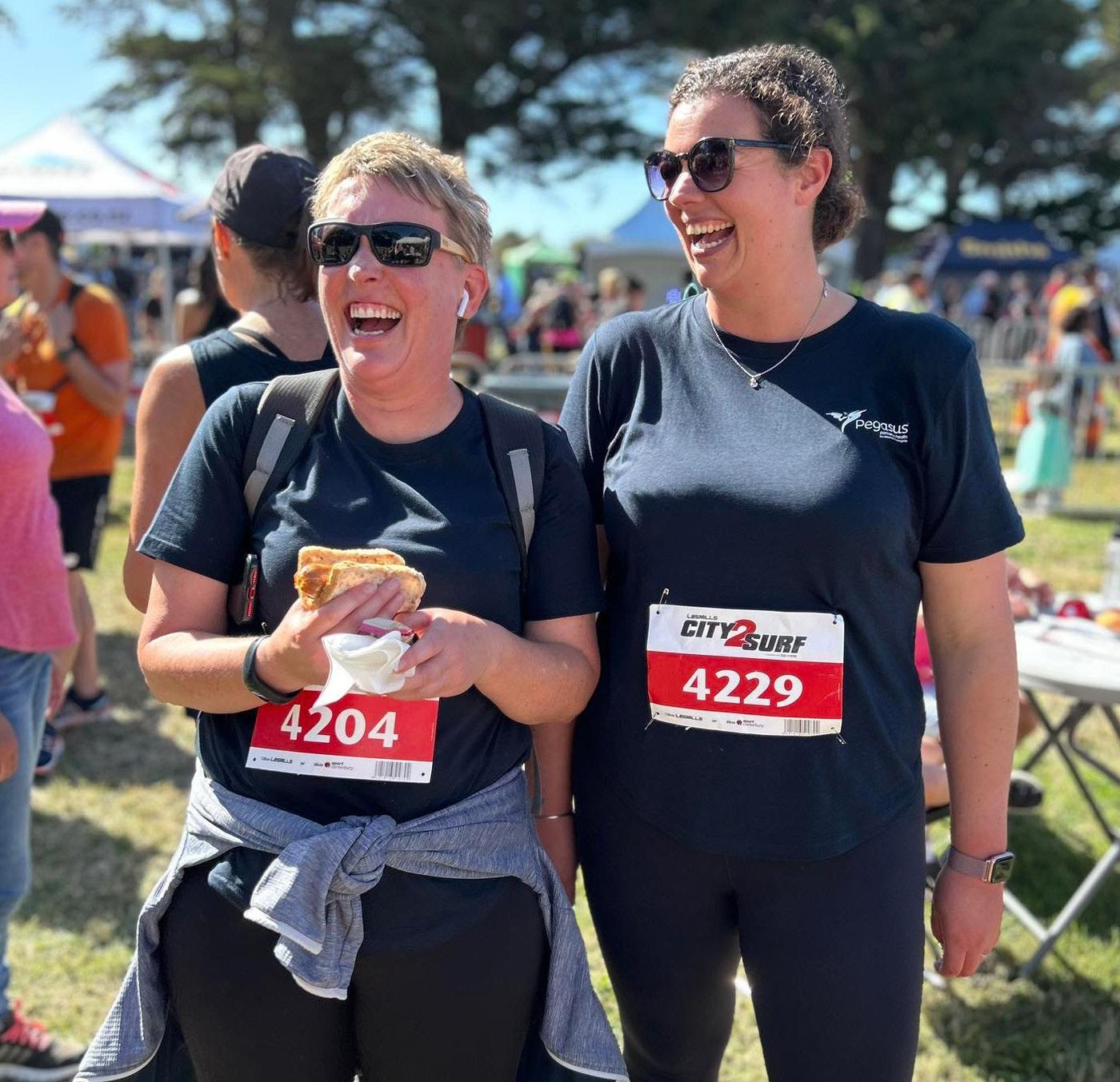
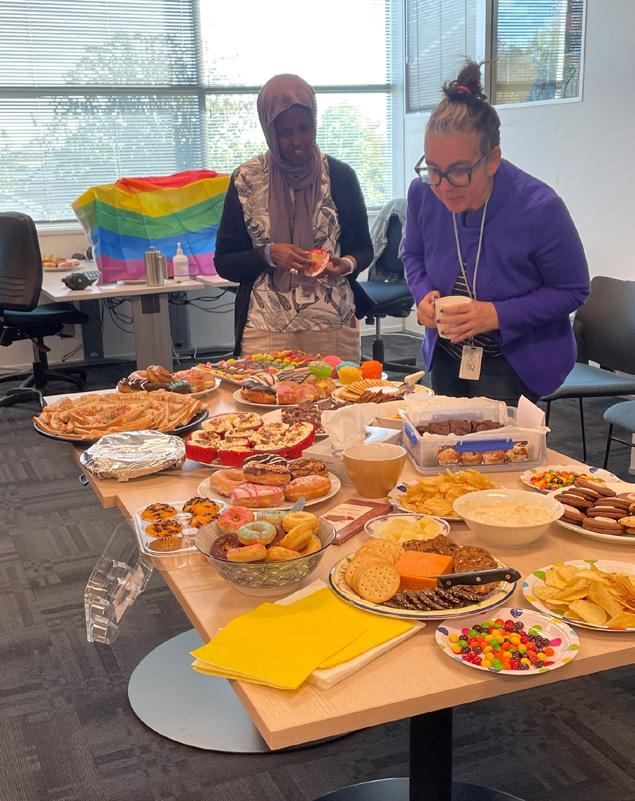
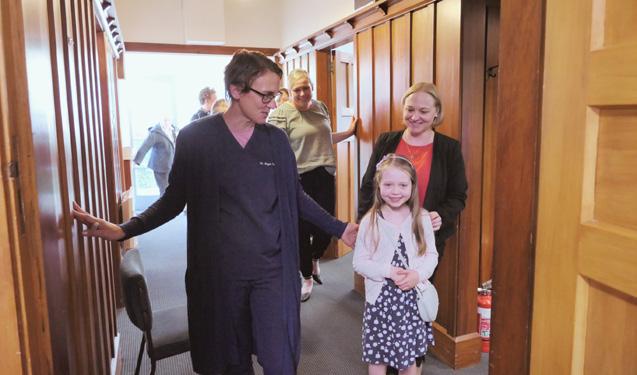
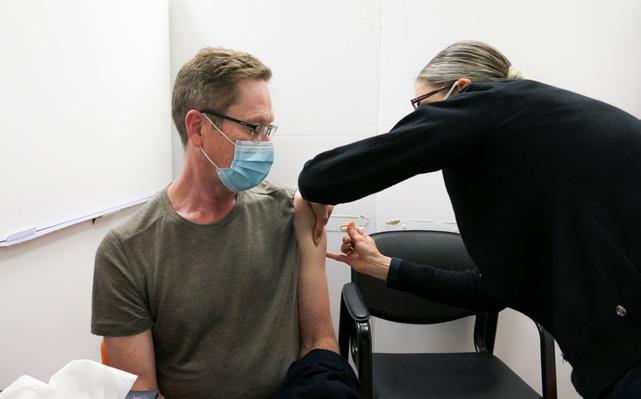
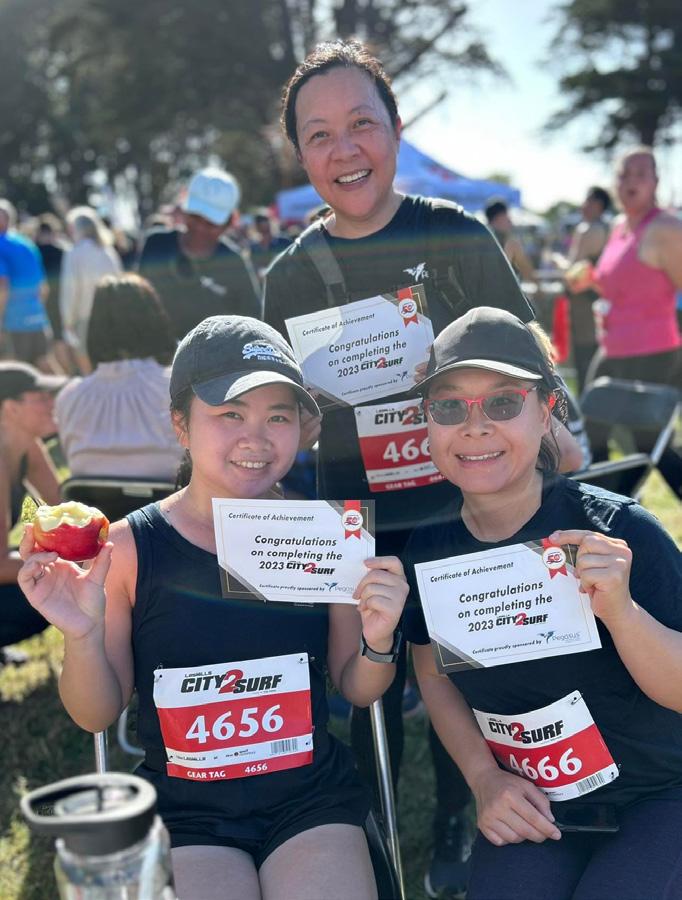
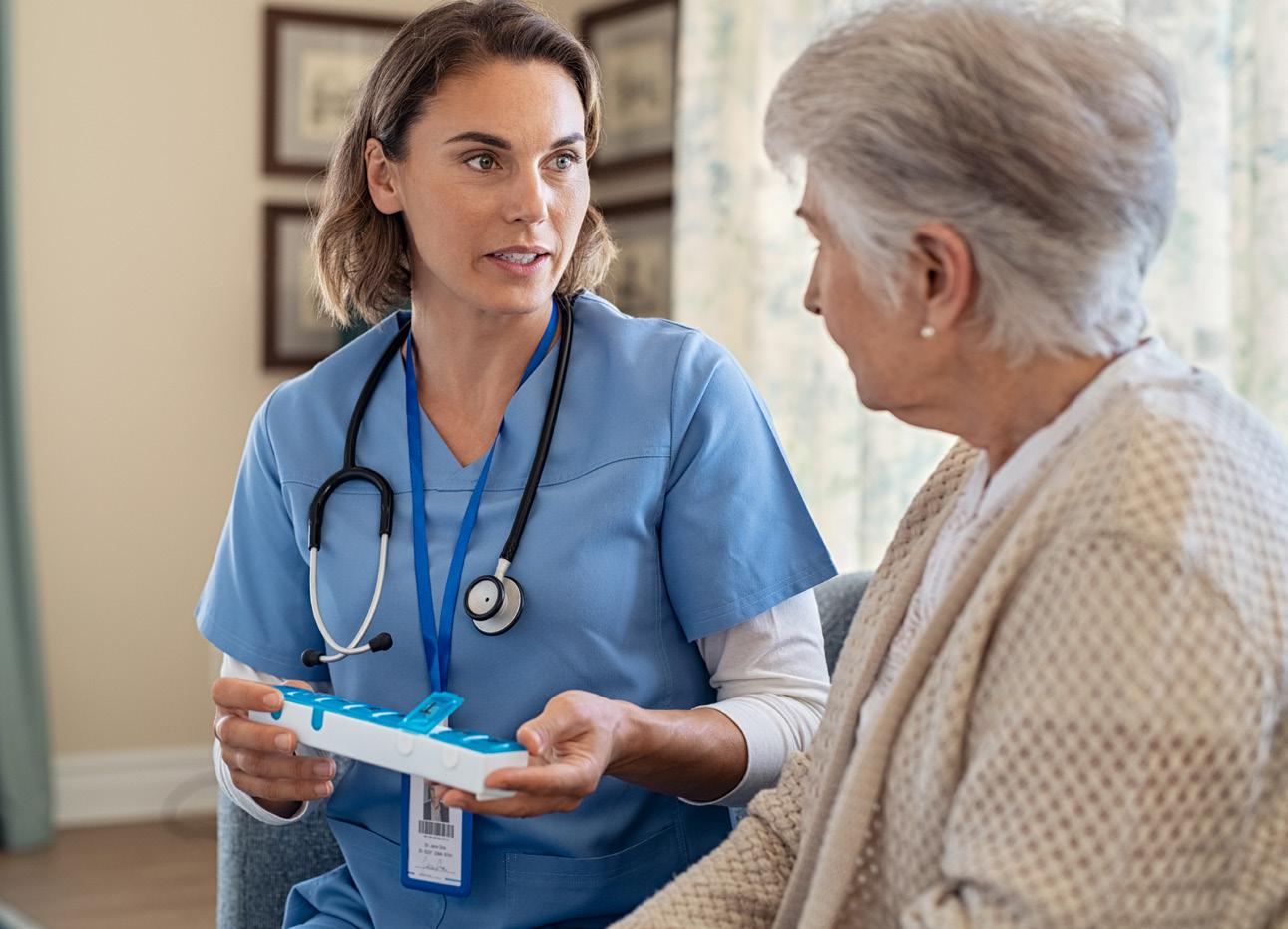
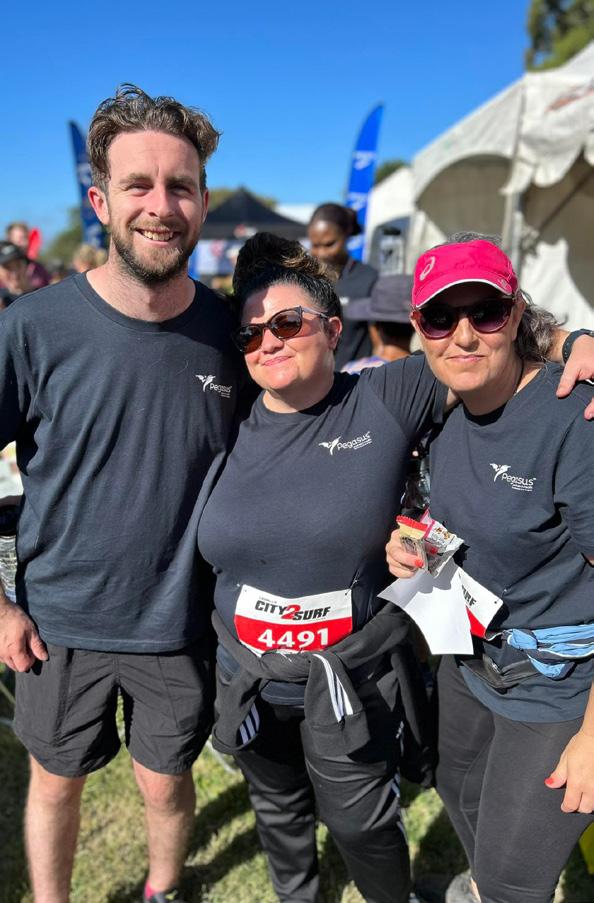








Tēnā koutou
katoa,Last month we bid farewell to Mark Liddle. Mark had been with Pegasus Health for 12 years, firstly as Chief Operating Officer before stepping into the role of Chief Executive Officer (CEO). We are thankful to Mark for his contribution and leadership, particularly during the pandemic and as we navigated the Health Reforms. We wish him all the best.
In the meantime, we are looking to recruit a new CEO with a commitment to the enhancement of equitable health outcomes across the Waitaha Canterbury region. While this process is followed, the Senior Leadership Team is working closely with Board Chair, Barry Bragg, to ensure the organisation is supported and continues to serve our members and the community.
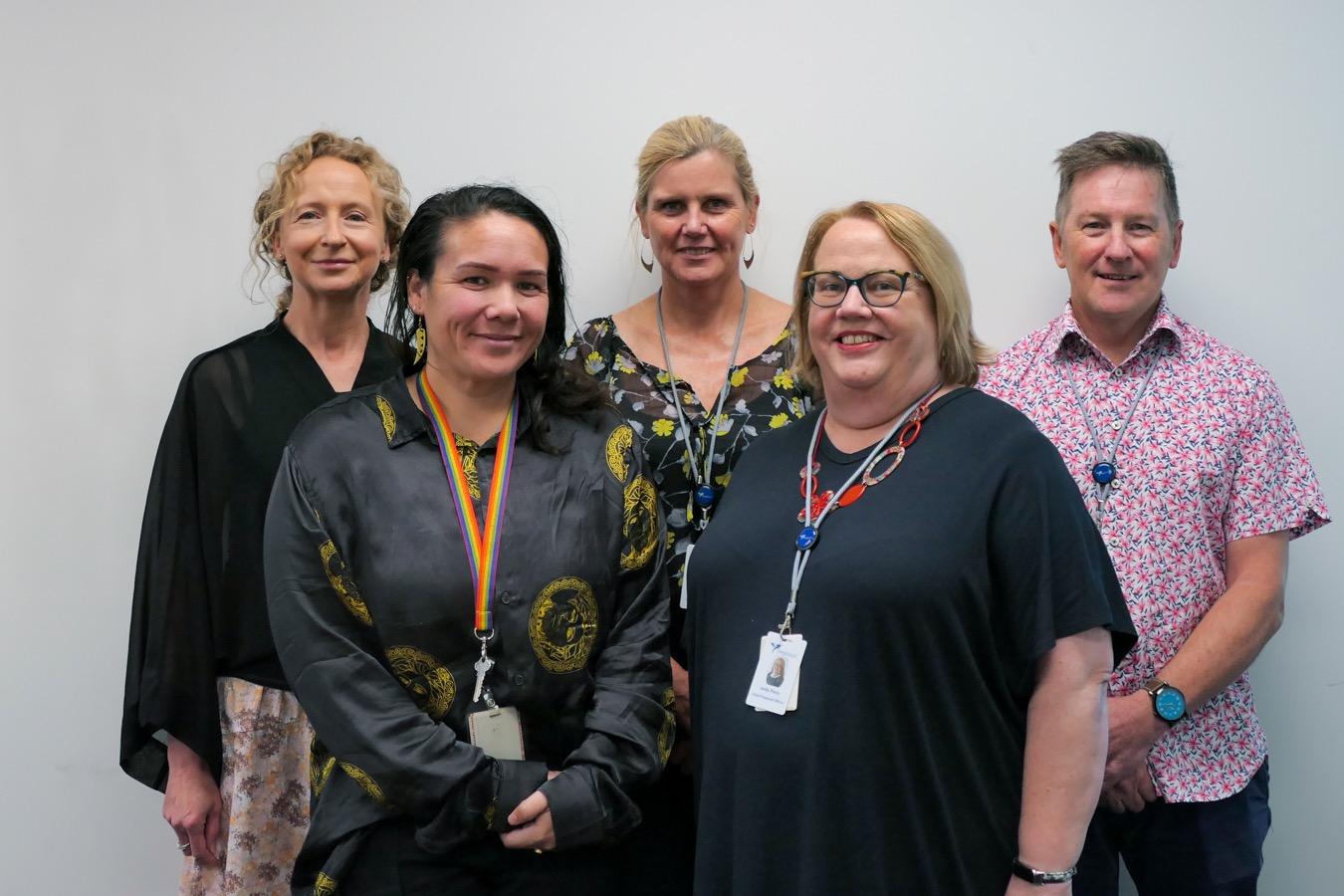
We are preparing for winter and working jointly with organisations across the health sector to build and ensure we have the capacity to support our general practice and primary care partners.
Ngā mihi nui, LISA BRENNAN General Manager of Patient & Provider Services“Anei au, tō pou whirinaki.”
I’m here, I’ll support you.
The Pegasus Health Acute Demand Service provides communitybased care for patients that would otherwise require hospital admission. Established in 2000, the Acute Demand service is the only one of its kind in Aotearoa New Zealand. Among other conditions, Acute Demand supports people with chronic, long-term heart conditions to receive care in their own homes.
“Typically, we see patients who have been discharged from hospital and support them towards selfmanagement at home. The goal is to keep people out of hospital,” Barbara Hendry, Nursing Team Leader - Acute Demand said.
Acute Demand provides short-term support for patients with heart failure as needed until the patient has a better understanding of how to self-manage. The Acute Demand team use the Staying Well with heart failure booklet produced by the Heart Foundation. An excellent resource to help patients self-manage their condition by helping them to understand their medications and recognise declining symptoms.
Both general practitioners (GPs) and the hospital can refer patients to Acute Demand. Heart patients will typically present with shortness of breath, swollen legs, chest pain or other symptoms.
“Acute Demand is an excellent stepping stone to avoid hospital admission. We can support people to get their health back under control and set them up to understand and manage their condition long-term,” Barbara said.
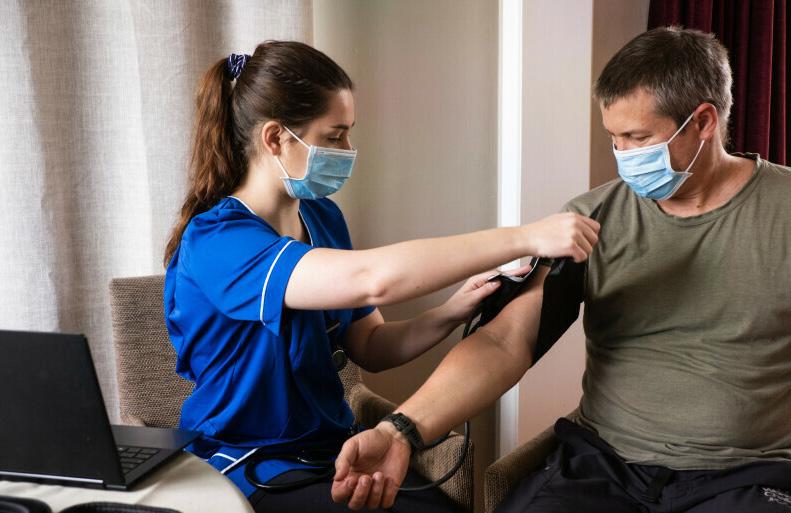
The City2Surf event held in March was a great success in Ōtautahi Christchurch, with Pegasus Health being a sponsor this year. The community had a wonderful time participating in the race, with participants from the wider Pegasus whānau joining in on the fun.
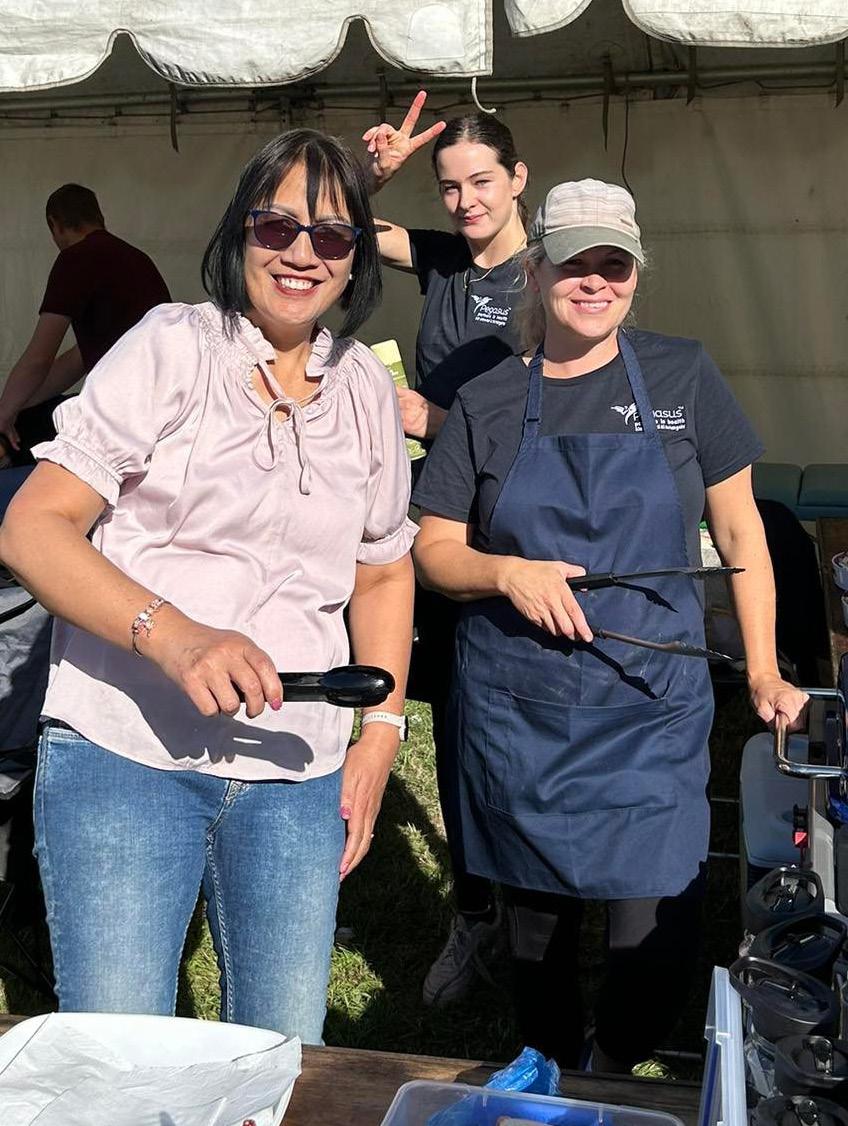
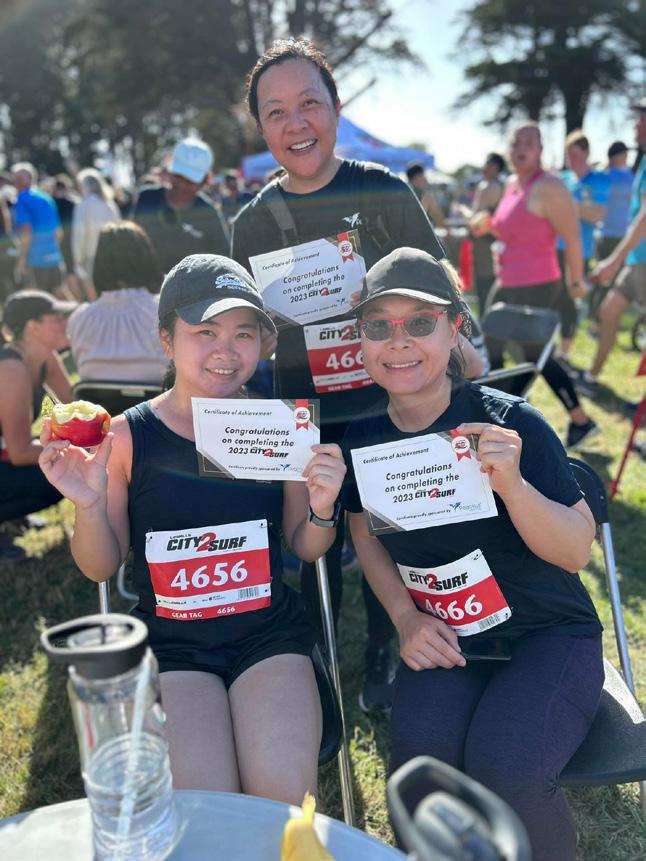
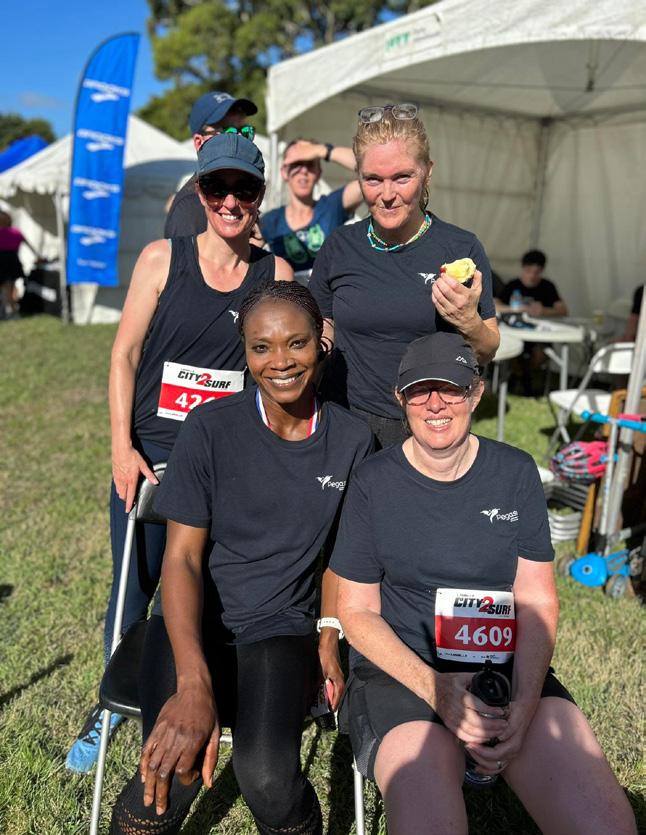
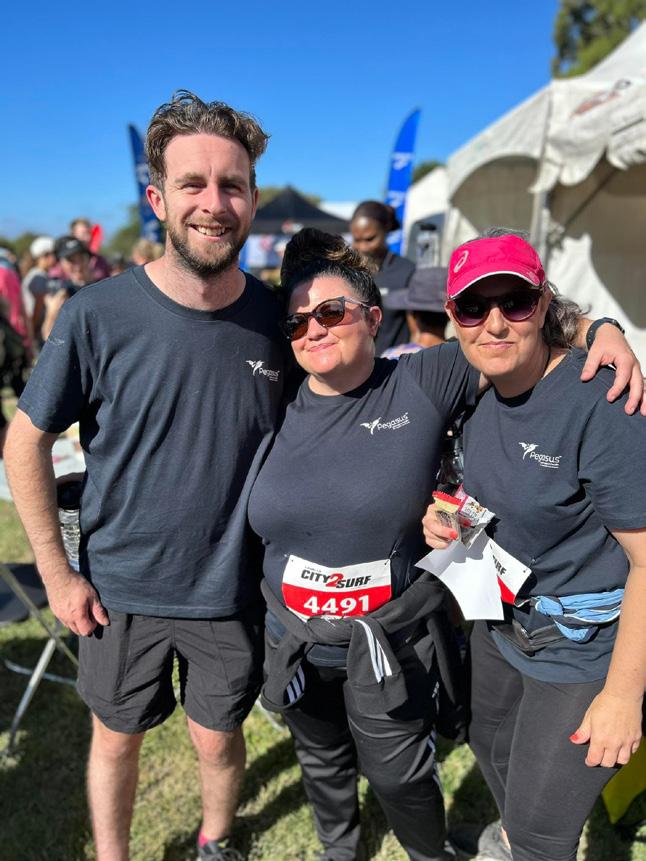
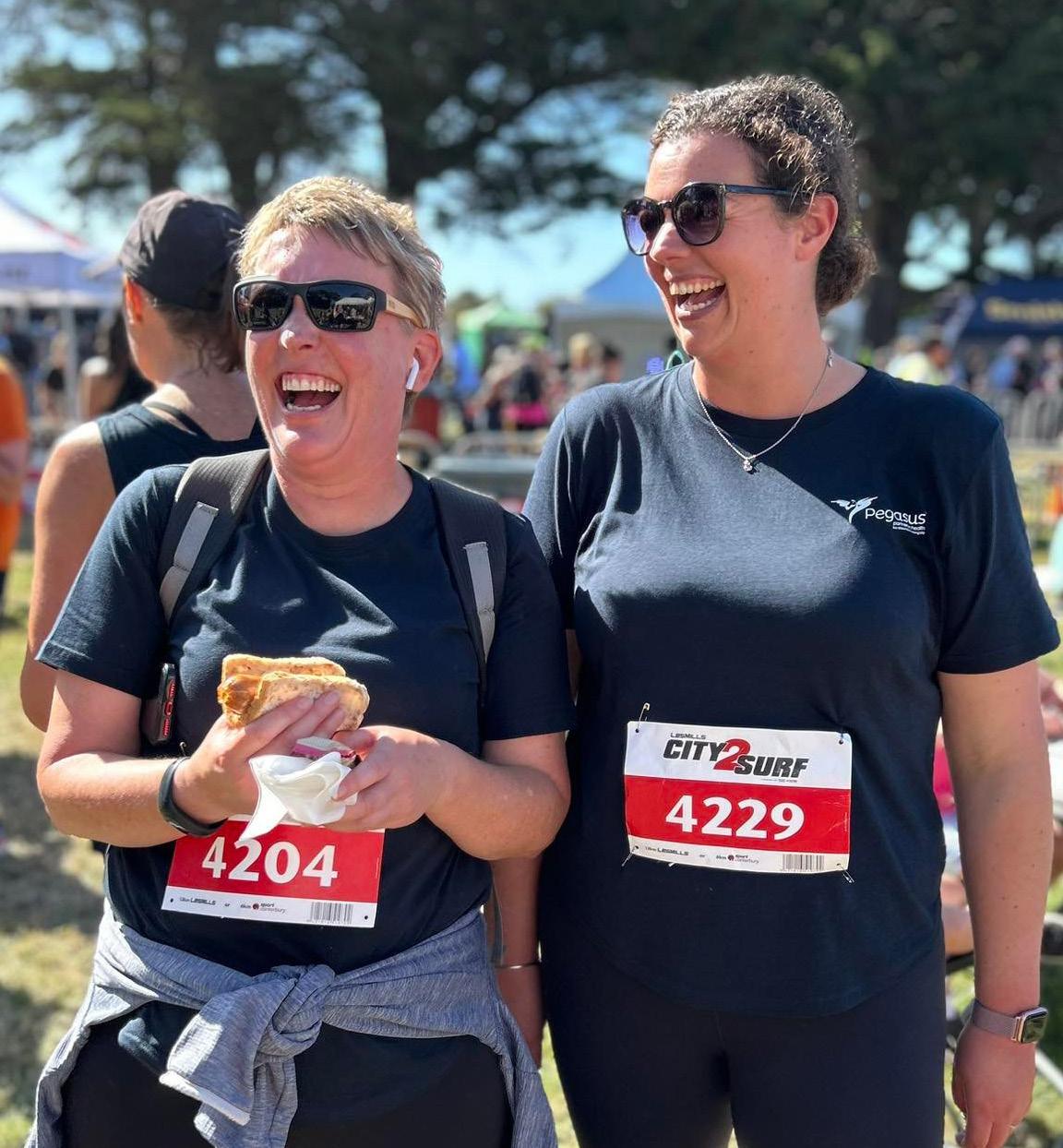
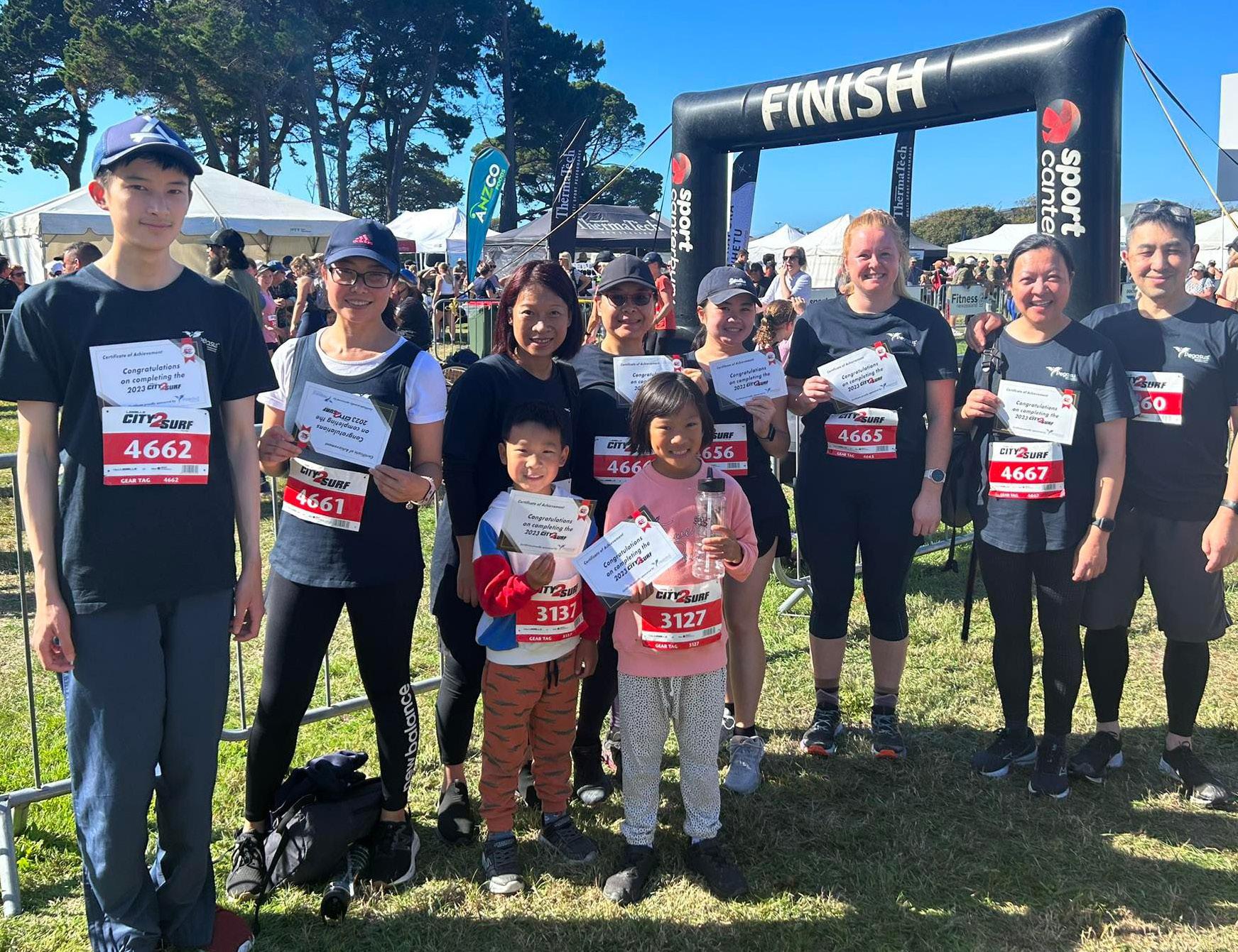
It was an excellent opportunity for local practices to catch up with each other while getting active.
The Pegasus tent was a highlight of the event, where participants gathered for a well-deserved sausage sizzle and a relaxing massage.
We are looking forward to the event next year!
This month, Cranford Street Medical Centre rebranded to Juno Health. Led by general practitioners (GPs) Dr Catherine Smart and Dr Megan Pow, the newly rebranded practice specialises in women’s health and family medicine.

The practice’s new name pays homage to the Roman goddess Juno, who was known for her strength, wisdom, and ability to protect women. With a team of skilled and compassionate healthcare professionals, Juno Health is
dedicated to empowering women and improving their overall health and wellbeing.
Pegasus Health Practice Relationship Manager, Lovey Ratima-Rapson, shared a blessing and karakia over the premises in an intimate re-opening ceremony this month.
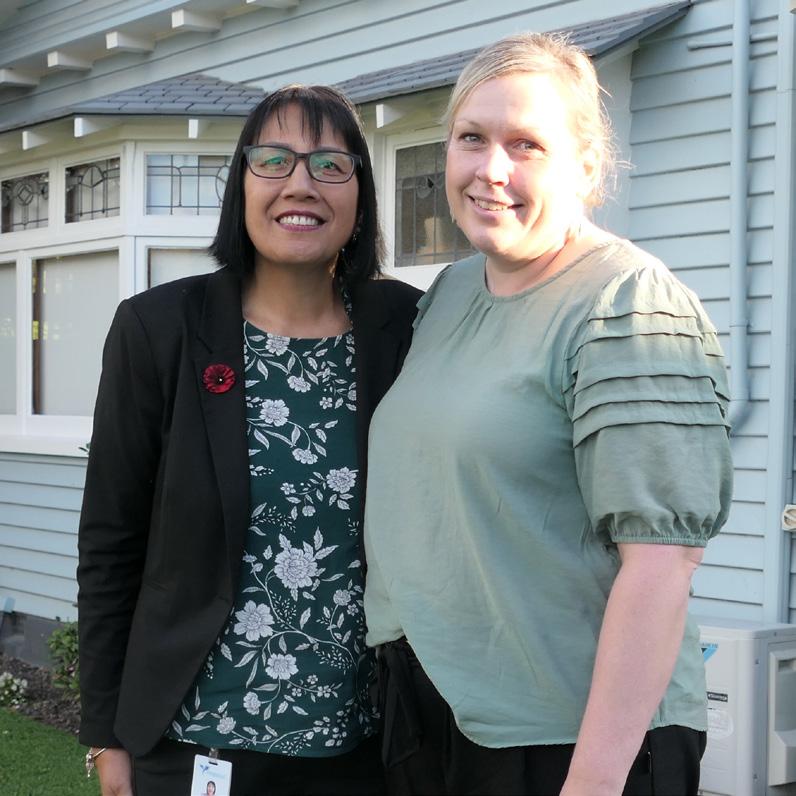
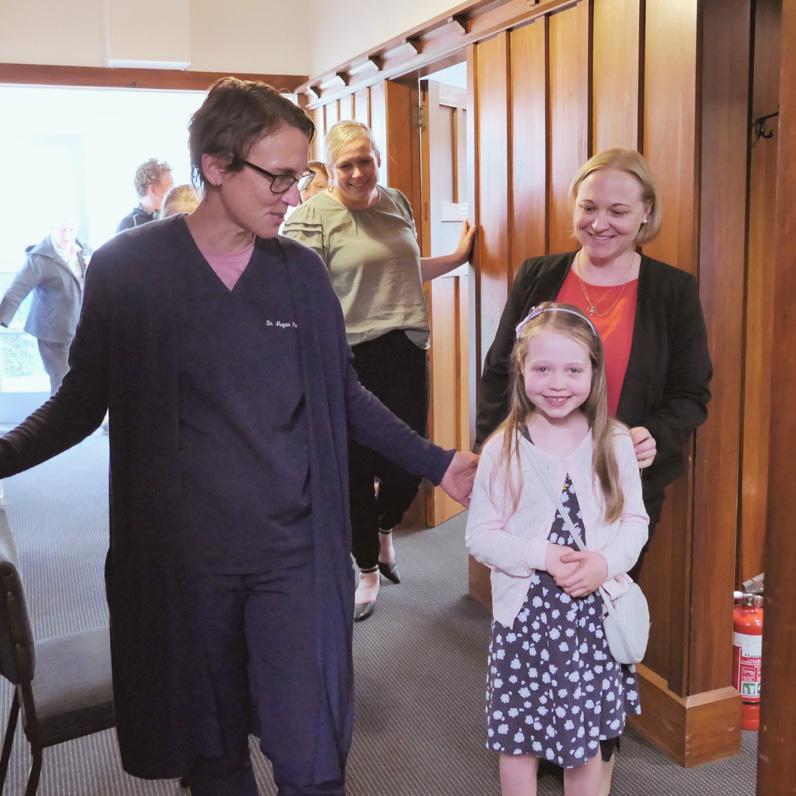
Juno Health is also pleased to announce that Dr Catherine Smart will be running a dedicated Women’s Health Clinic on Tuesdays for both enrolled and non-enrolled/private patients.
Further information on the Juno Health team and the services they provide is available at www.junohealth.co.nz.
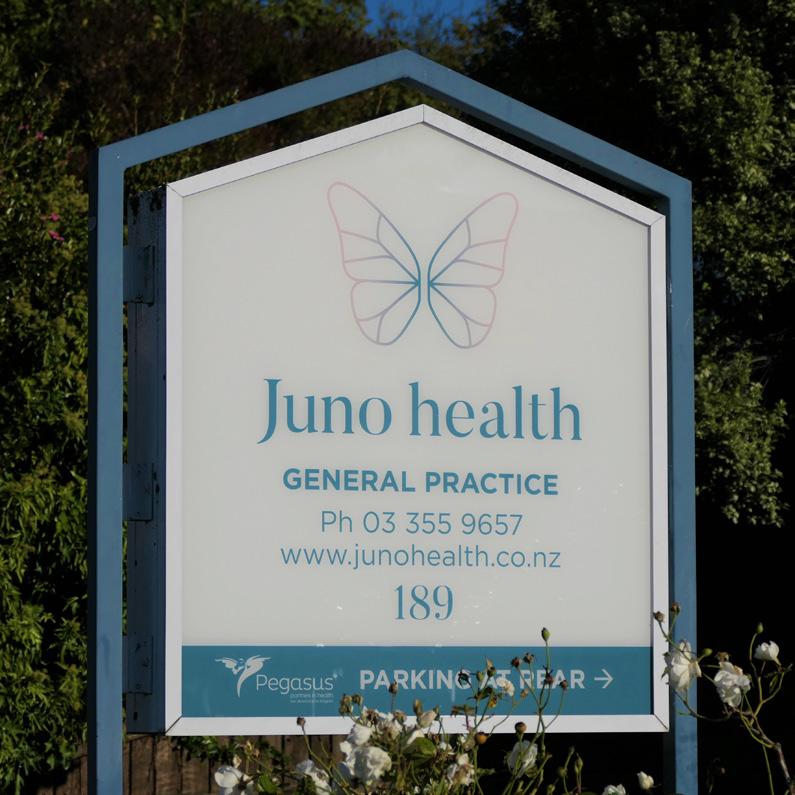
• Bivalent vaccines work by combining two strains of a virus, which prompts the body to create antibodies against both strains, providing a greater level of protection. The bivalent COVID-19 vaccine targets both the original COVID-19 virus as well as the Omicron variant.
• The bivalent vaccine is only available as a booster. If you have already had two COVID-19 vaccinations, you can consider getting the bivalent vaccine.
• Any protection is better than none. If you are uncertain which vaccine is right for you, speak to your family doctor, nurse or pharmacist.
• Everyone aged over 30 can get the bivalent vaccine as a booster if you have already had at least two COVID-19 vaccinations.
• People aged 16 to 29 can get one bivalent booster dose if they have already had two COVID-19 vaccines.
• For both groups, it must be at least six months since your last COVID-19 vaccine or since you had COVID-19.
• People aged 16 to 29 who are at risk of severe illness from COVID-19 can have an additional booster dose. This includes:
• Severely immunocompromised people
• Those who have a medical condition that increases the risk of severe illness from COVID-19
• Those who live with disability, with significant or complex health needs or multiple comorbidities.
• Children under the age of 12 are not eligible for boosters. If you think your child should be considered for a booster, speak with your doctor, nurse or pharmacist.
• You can book an appointment for a booster dose:
• online through Book My Vaccine, or
• by calling the COVID Vaccination Healthline on 0800 28 29 26 (8.00am to 8.00pm, 7 days a week).
• You may experience some side effects, similar to those you might have had after the first or second dose, such as muscle aches, pain at the injection site, or headaches.
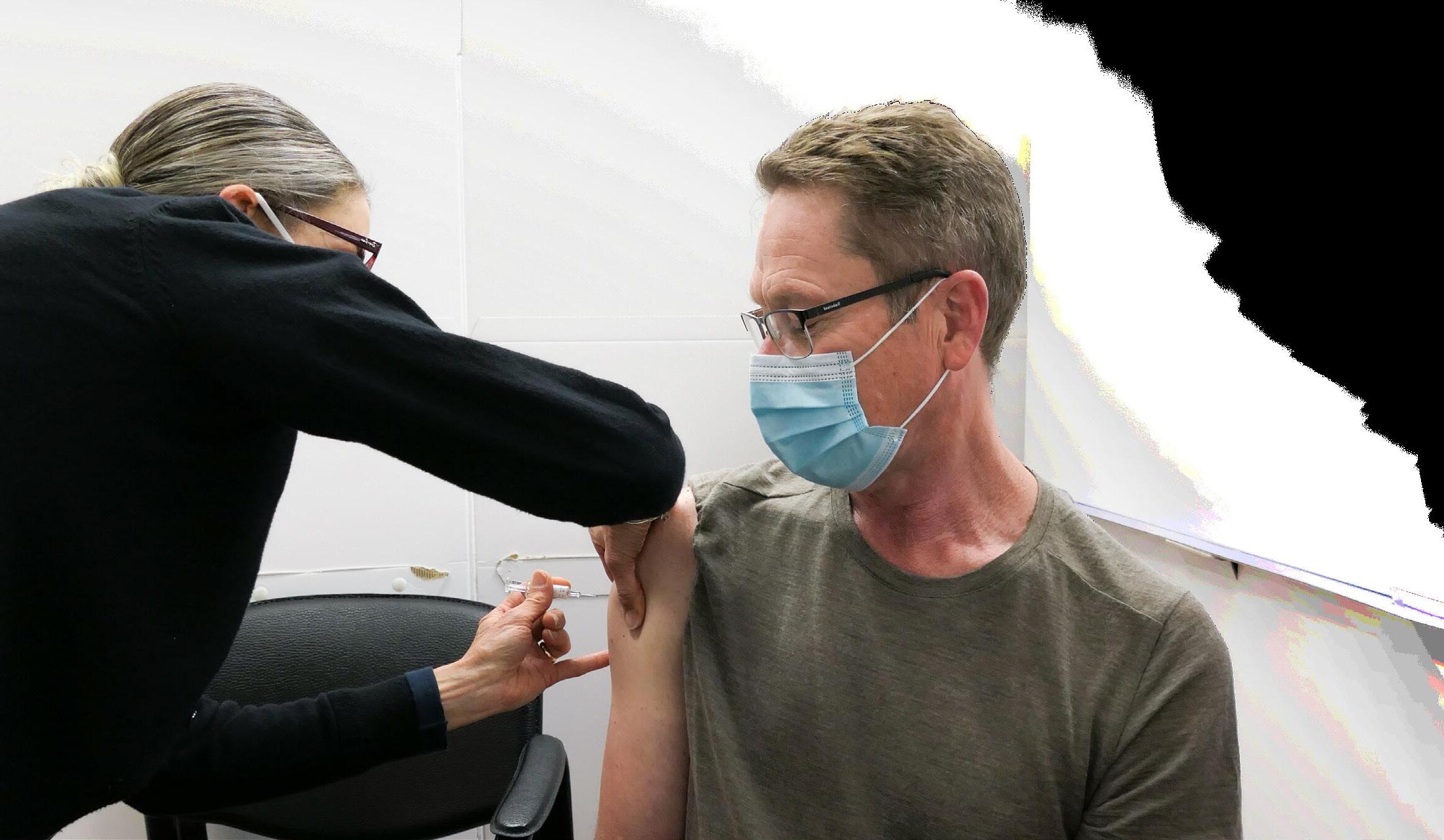
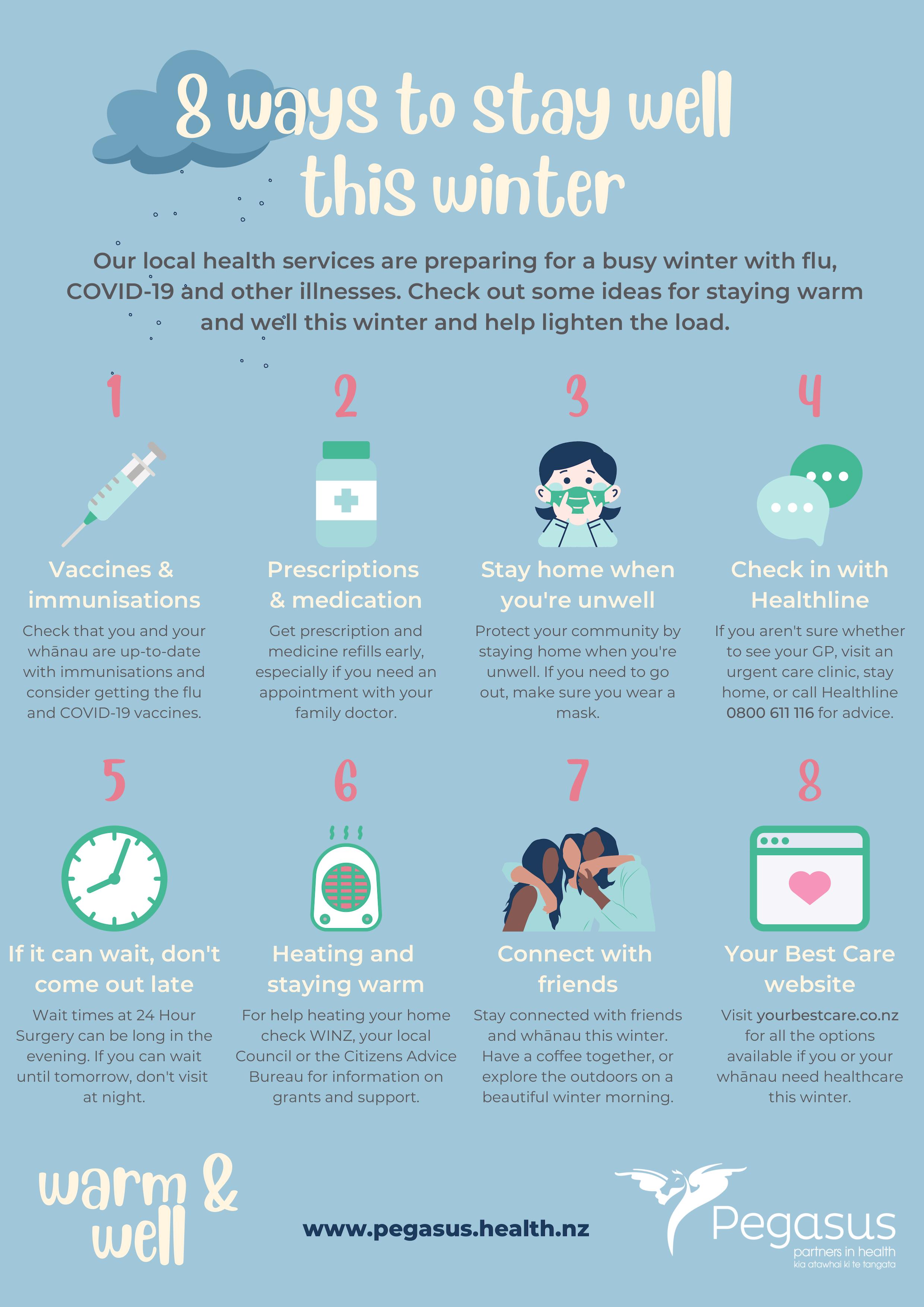
Pippa MacKay, general practitioner (GP) at Ilam Medical Centre thinks it is an amazing privilege to be a GP, and while she has just retired and sold her practice, she still is working part-time at the Christchurch Hospital.
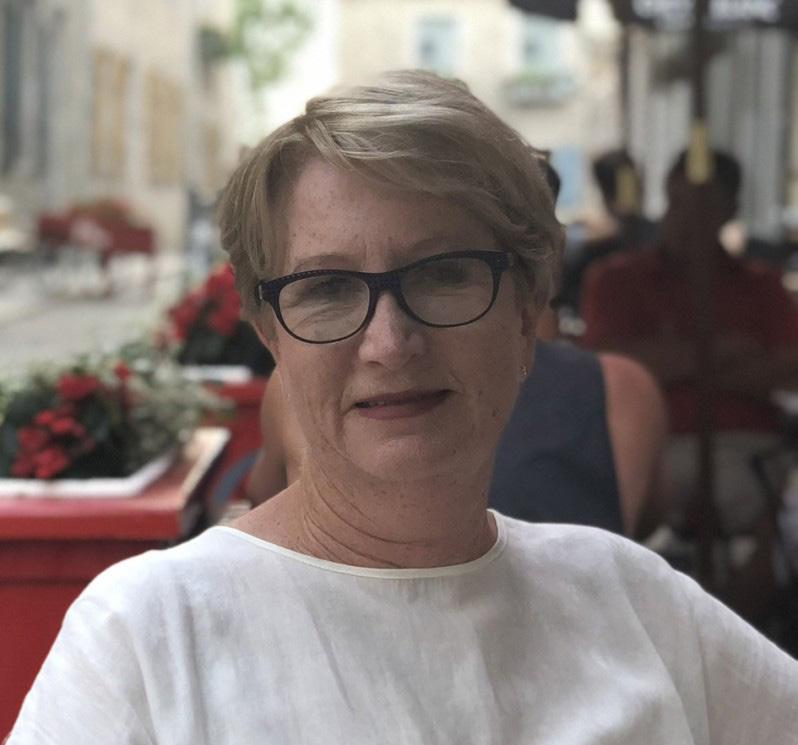
“There is a certain amount of loss around leaving a profession like medicine, which is why I have not decided to quit full-time yet and still doing part-time work at the hospital,” Pippa said.
Pippa was the first woman chair of the New Zealand Medical Association, and with that came many challenges.
“Dealing with media was quite challenging, I had three small children, and often had a television camera set up around the surgery. But it was also very stimulating and many of my patients were roped into being on television,” she said.
Other challenges she faced stemmed from COVID-19, having to work from home and do phone consultations.
“It made people aware that a phone consultation is a great way of getting in touch with a doctor. Even now we find a lot of people preferring phone consultations because they are too busy to get to see us in person, that is something good that has come from COVID,” Pippa said.
Focusing some of her career in obstetrics saw Pippa delivering many babies, which she then watched grow up and start their own families.
“One time I had to deliver a baby in a ball gown as I had been at the Opera and got called in!” Pippa said.
As Pippa begins the last leg of her career, she shares advice to those just starting or contemplating which direction to go.
“Do something you enjoy and that brings you joy. That way when you hang up your hat like I am, you can look back and think I had a great working life that was good for me, and I made a difference,” Pippa said.
With a love of sport and mental wellbeing, Ben Shine quickly realised that his science-focused degree was not the right path and pivoted to psychology.
“Through sport and the focus there on wellbeing, I got more interested in psychology. I then had a great supervisor along the way who got me interested in social psychology,” Ben said.
Having participated in research, focused on a youth adventure education course in the Bay of
Islands, Ben hopes to combine his love of sport and the outdoors with his qualification in psychology.
“The research found an improved sense of belonging and resilience among youth who participated in the study,” he said.
Ben is looking forward to starting an internship with kaupapa Māori health and social services provider, Purapura Whetu, where his focus is on mental health support for individuals and whānau.
He is currently completing his Masters of Science in Psychology and a Postgraduate Diploma in Clinical Psychology through the University of Otago.
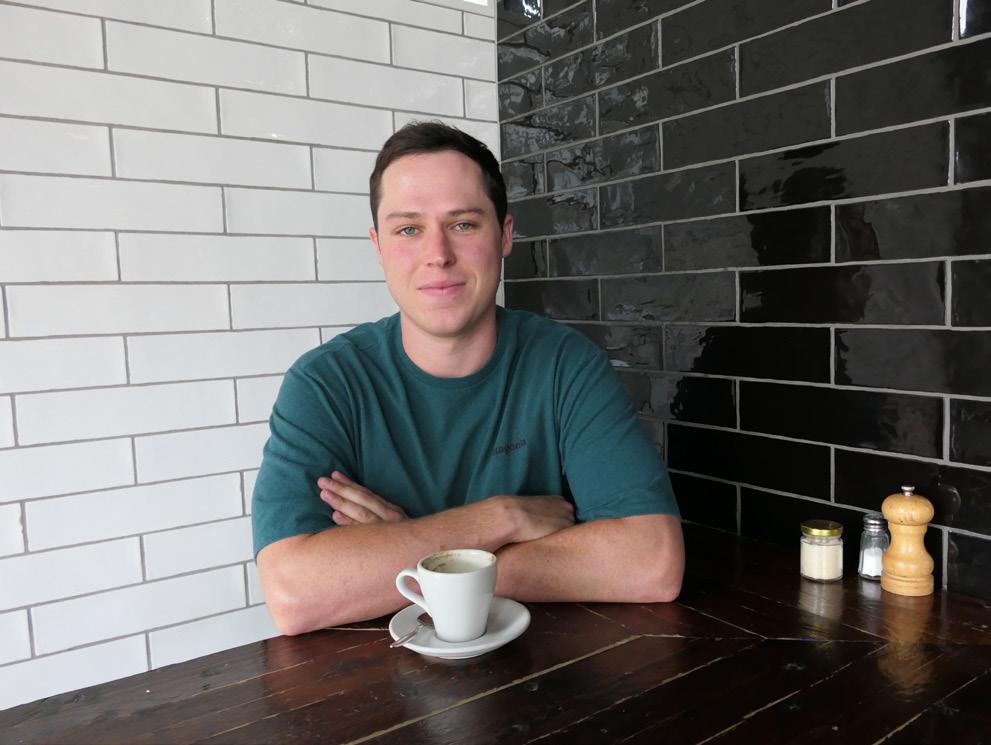
Pegasus House celebrated Ōtautahi Pride Week, sharing kai, creating rainbow crafts, and having a korero with staff. Our rainbow crafts went on display in our reception area for all to see.

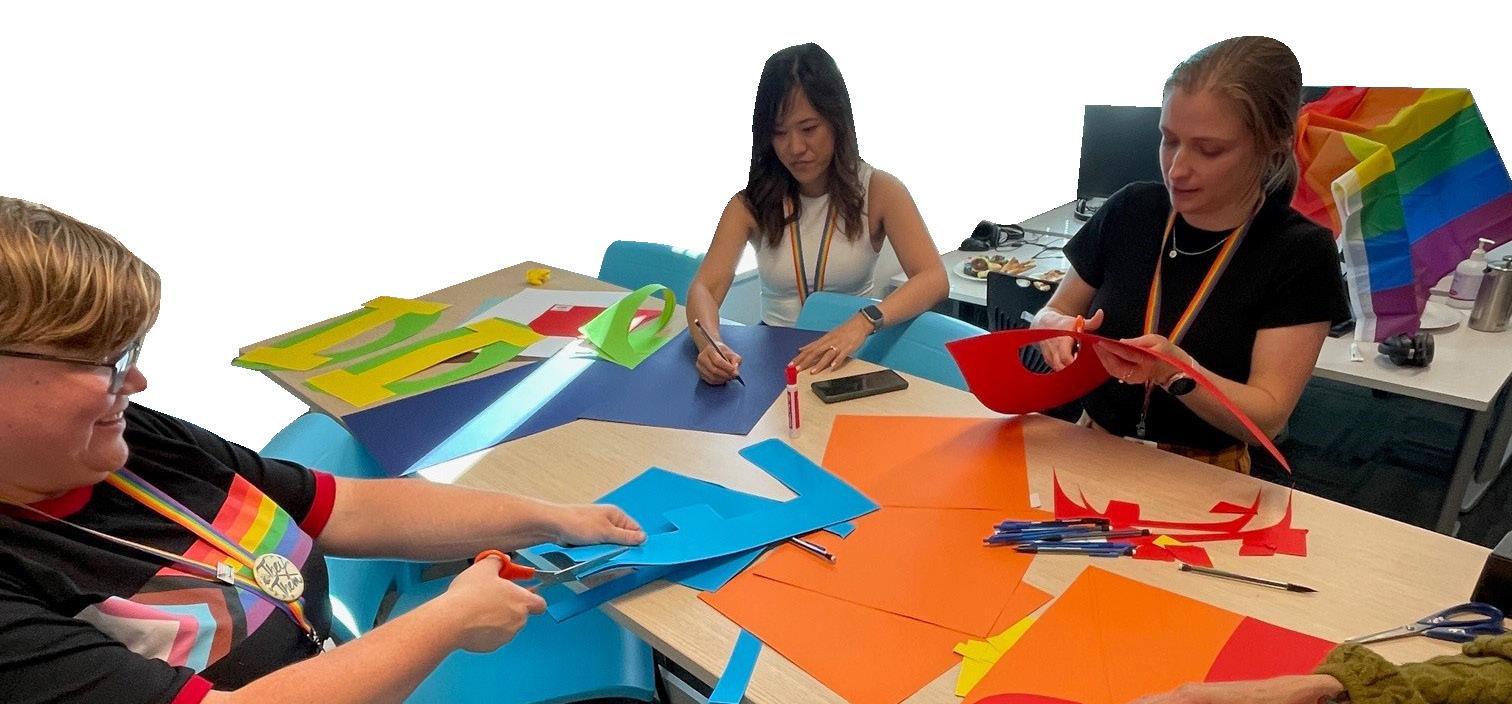
Donelle Gryphon, SharePoint/Office 365 Specialist said that as a new rainbow staff member they loved seeing Pegasus embracing Pride Week.
“The entire experience of starting at Pegasus has felt so welcoming; from the rainbow lanyards I spotted in my interview, to discovering the genderneutral bathrooms, through to the loud and proud celebration of Pride. It has certainly set the tone for me to feel safe to bring my whole self to work,” Donelle said.
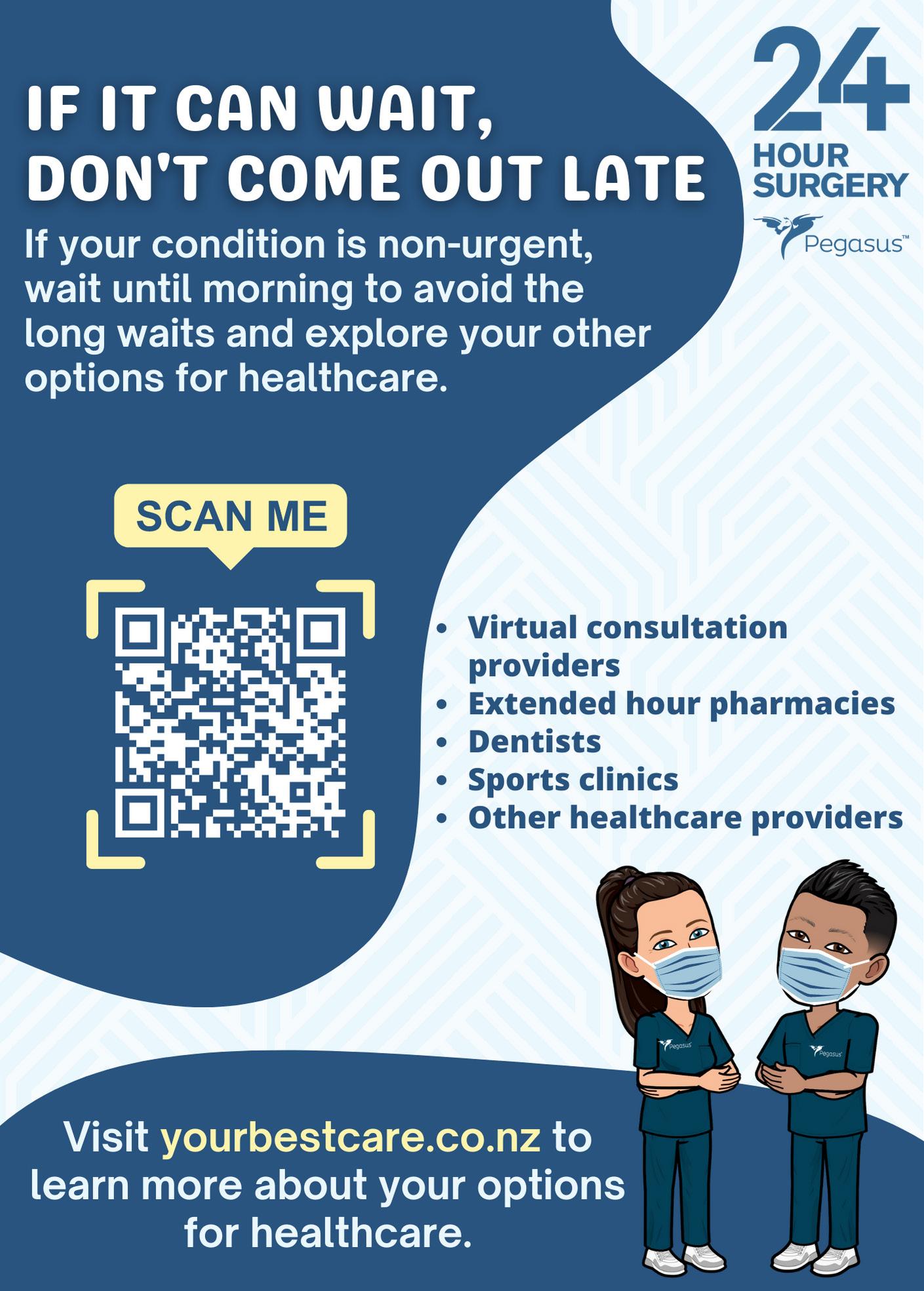
Pegasus 2025 is produced by the Communications Team at Pegasus Health (Charitable) Ltd. Content within Pegasus 2025 newsletters has been included with the approval of content providers therefore please contact us if you wish to reproduce or alter and transmit any of the information or images contained within. Contact communication@pegasus.org.nz
